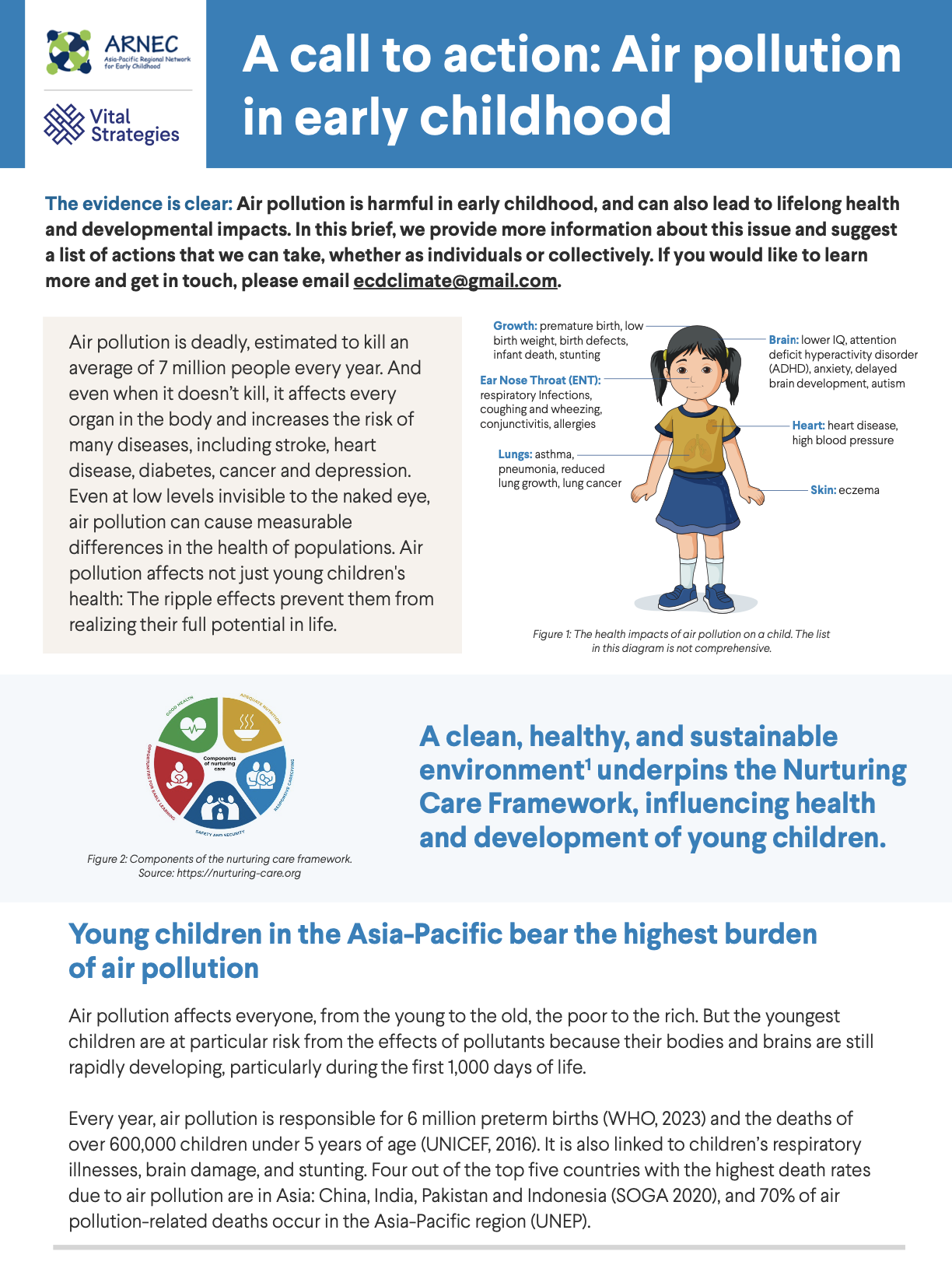Every year, air pollution is responsible for the deaths of over 600,000 children under 5 years of age (UNICEF, 2016). Air pollution is especially harmful to young children as their bodies and brains are still developing, and they lack the natural defence mechanisms to fend off harmful pollutants. They also breath up to five times faster than adults, and with every breath, take in more air per unit of body weight than adults. Exposure to air pollution in early childhood can lead to lifelong health and developmental impacts, including reduced lung capacity, stunting, lower IQ and depression.
Vital Strategies has partnered with the Asia-Pacific Regional Network for Early Childhood Development (ARNEC) to publish this advocacy brief to highlight the specific risk that air pollution poses to young children, and a list of actions that we can all take to reduce this risk.
This publication is the first in a series and part of a resource kit on Climate and Environmental threats on early childhood development. To learn more, please email ecdclimate@gmail.com
Download the full advocacy brief (10 pages)
Download the call-to-action only (2-pager)
Recent Abstracts
Effects of Heat on Early Childhood Development
Blood Lead Surveillance of Children and Pregnant Women in Tamil Nadu, India
Sportswashing through Media: Coca-Cola’s Olympic Play – A Research Report
What’s in Our Food?
Mais Dados Mais Saúde
More Data, Better Health – Primary Health Care
Mais Dados Mais Saúde: Experiência De Discriminação Cotidiana Pela População Brasileira
More Data, Better Health – Experience of everyday Discrimination by the Brazilian population
Monitoramento de Estratégias pelo Fim da Violência contra Crianças e Adolescentes
Harm Reduction: The Neglected Pillar of US Drug Policy
